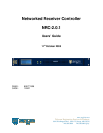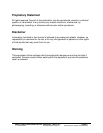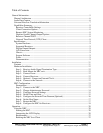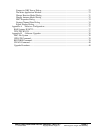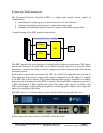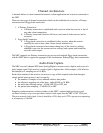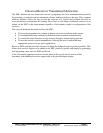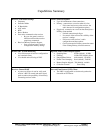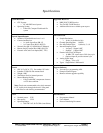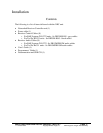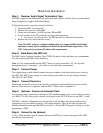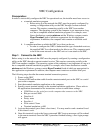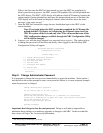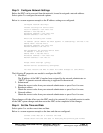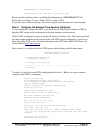
Users’ Guide: Networked Receiver Controller - NRC-2.0.1 PAGE 5
11
th
October 2005 Copyright © 2005 Aegis, Inc wwww.aegis-inc.net [ph. 240-568-9006]
R
E
C
E
I
V
E
R
S
CONTROL
DATA
CPU
NRC
Client
Networked Receiver Controller
General Information
The Networked Receiver Controller (NRC) is a single node network device capable of
simultaneously:
• controlling and configuring up to 8 attached receivers for data collection
• collecting and digitizing each receiver’s analog audio output signal
• formatting and routing the digitized receiver’s signal to an attached network client.
A simple diagram of the NRC system is shown below.
The NRC represents the server portion of a network based client/server architecture. NRC clients
connect and disconnect from the NRC via an Ethernet network connection as necessary. When
connected, a client has the ability to control, configure and collect digitized audio data from the
associated receiver.
Each receiver is physically connected to the NRC via an RS-232 command/control port and an
audio input port. The receiver’s analog audio output is connected to an A/D where it is sampled
at 16 KHz with 16 bit resolution. The resultant digitized audio signal is available for secondary
processing and distribution from the NRC as required. The default NRC configuration provides a
4 KHz band-limited, 8 KHz sampled data signal. This digital audio signal is available to the
NRC client through a simple packet based protocol, which aggregates samples into a single data
packet for forwarding to the client.
The NRC server is a 1 rack unit chassis system with the following front and back views.
In this chapter, the various features of the NRC will be discussed.



